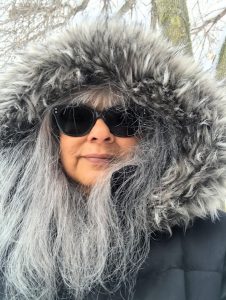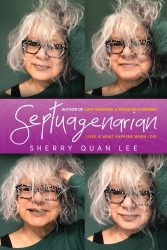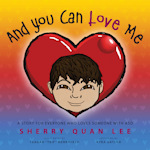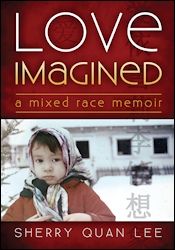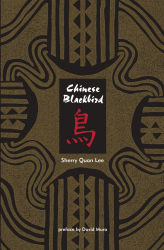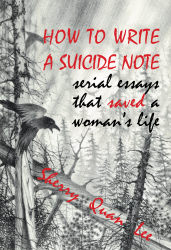I’m offering one free poem critique per week. If selected, your work and accompanying critique will be published on my blog site at no cost to you!
February’s Theme-of-the-Month: poems will be selected by my very subjective belief that it is about love. Not the sentimental kind of love, the kind some of us never experience, but what love triggers. Perhaps the poem is longing for love- love for humanity. I have been writing a collection of love poems for longer than I will admit, and still do not have enough poems for a chap book, but I believe in the love of poetry, the love that reading and writing poetry can give us. Nikki Giovanni is, I believe, the Goddess of love poems: Love Poems (William Morrow and Company, Inc., 1997), and Bicycles (William Morrow, 2009) (I have a bicycle poem, but my bicycle is blue). I have collected more mighty fine love poems than I have written. But then, every poem is a love poem, isn’t it?
How it Works:
- By submitting your poem, you have agreed to its publication on the blog.
- The free weekly critique will be randomly selected from all of the poems submitted for the standard $10 critique.
- If your poem isn’t chosen for the week’s free critique, you agree to submit the $10 payment as soon as possible by PayPal.
- At this time, only short, one page, poems will be accepted.
- Poems must be sent in by email in a Word (or compatible document)
- Depending on demand, critiques will be returned within a one week period. The length of individual critiques may vary.
Testimonials for critiques by Sherry Quan Lee
Personally, I think you’ve taken [the poem] from a “litany of complaints” to a “powerful declaration”. Simply deleting the baggage to keep the emotion and intention from being buried alive. You are the Goddess of poetry editing.
Victor Volkman, publisher, Loving Healing Press, Modern History Press l Ann Arbor, Michigan, http://modernhistorypress.com/
I spent most of my life feeling as though I was a writer and loving to write, but never allowing myself the joy or pleasure of exploring the possibility or potential of my ability. My first experience working with Sherry Quan Lee was through a writer’s workshop. Her passion, skill and encouragement brought me from my initial shy and awkward poems to completing a prose manuscript. As an unknown I wasn’t sure what to do, but her recommendations and the opportunities she affords her students as writers continue to serve me well. Her influence opened a whole new world for me and every day I am blessed with an ever expanding world of writing. I participated in her workshops, classes and hired Sherry as a writing mentor. I have not been disappointed. She is a valued member of the writing community and she is loved and respected for her own writing as well as her teaching. All I had to do was go back to some of my first poems and realize I have grown in all of my writing, reading and creative pursuits. A part of me is complete.
Sandra J. Newbauer
Mankato, Minnesota
EXPERIENCE
Community Instructor: Metropolitan State University, St Catherine University, University of Minnesota, SASE: The Write Place, Intermedia Arts, The Loft Literary Center, True Colors Bookstore, etc.
Book length manuscript critiques for poetry and nonfiction prose writers.
MFA in Creative Writing, University of Minnesota
EXAMPLE OF CRITIQUE Here is a poem I recently posted on this Blog site. Although not recommended by some writers, I tend to send my poems into the world cold, rough, bursting at the seams. But, I’ve also discovered, after many years of writing poems, that editing is not only necessary to make our poems better, which will engage a larger audience, but also editing, as Valerie Miner has written, is not punishment. Editing, I think, is fun. It’s play. It’s also very meaningful. Go into your closet of memory, and go into your closet of poems, literally, and shake them out, shake them up, make them better and share them.
Poem Critique (see blog entry for original poem):
In re-visioning this poem, I began with the format. The format was giving me technical problems. Also, I didn’t want the numbering and spacing to slow the poem down as much as it did. So, delete, delete. Then from beginning to end, I was committed to my gut feelings/my personal reactions in conjunction with what I know about the craft of writing (though I don’t always adhere to any specific rules).
I liked the epigraph, that’s what triggered the poem, but I needed to acknowledge the author, even if I couldn’t, from research, discover who the author is.
What I like about this poem is how the childhood rhyme triggered the subject of hands and the theme of hope: memory of a child’s hand, the mother’s hand, and then the hands of a grandchild. I liked that the poet showed hands in various situations not just play, but also shooting guns (we see guns, but we aren’t told what to think about them), but then also we see hands, hands of hope—action beyond the prayer, showing the grandson “where the people are.”
(Okay, the poet did make some strong insinuations about God, but in the editing, I deleted at least one of those “telling” moments. I deleted “there is only one god” because readers may misread, read what they want and think the author has written “there is only one religion.” Best for this poem not to make such a dramatic statement which the poet definitely doesn’t believe to be true.
I also made other deletions such as “Rivers of clay. Sand in the shoes in the socks.” It didn’t add meaning to the poem, it made for fun alliteration, but it sounded predictable. And I deleted in part “for the blue for the moon for the body for the man for the woman for the child” by taking out some of the unnecessary words; the line was stronger and more meaningful with focus on blue and on body. I also deleted mothers and fathers in the line: “Can’t wash away history embedded in the hands of children or mothers or fathers.” This way the poem focuses on the child—the child of the past and the child of the future.
As a poet in editing mode, I always enjoy playing with words. Words can change meaning, change sound, change rhythm, change tone. For instance, I deleted “stretching” pennies and added “saving” pennies. Literally, pennies are too small to stretch very far, maybe one can stretch dollars, but saving pennies doesn’t have to mean saving in a bank, but the amount of money saved because one is thrifty. In other words, this mother, couldn’t save very much, there wasn’t much to be saved. Sometimes I use words wrong. Not on purpose, but it’s my way of not being afraid to learn and use new words.
I think the ending of the poem is what it was to be—coming full circle, from the innocence of building castles in the sand to knowing that building castles in the sand is necessary. The ending passes hope and action unto the child.
A simple, clear poem with a universal message.
Thank you.
One last note, I am wavering about the format. I liked the numbers. Experiment. See what works for you, what you think works for the poem. Line breaks too, are like a jig saw puzzle piece, where to end, where to begin a line? Emphasize the most important words, that’s the rule. But what matters is what works for this poem, your poem?
Sincerely,
Sherry
Revised Poem:
INSIDE HANDS, MEMORY
Here is the church, here is the steeple, open the door and see all the people —childhood poem, unknown author
Hands that play. Hands that pray. Hands in the sand
building castles. Restless hands.
Mother’s hands. Sewing. Stirring the pot. Saving
pennies. Counting the children, 1-2-3-4-5.
Hands too tired to pray, the day the baby died.
Hands that touch to be touched. Fingers that flee.
Forgiveness. Hands that write. Hands that reach
for the sky for the blue, for the body.
Hands that ache. That can’t make the next generation of hands
not hurt. Can’t wash away history
embedded in the hands of children.
Hands that shoot guns, detonate bombs, cinch ropes,
bury the dead in the name of God, fighting for God against God.
Hands lost in the name of God. For God’s sake, we must
take back the hands.
The veins in my hands are rivers of mud. Stories flowing
around the castle of hope. Wrinkles of time gather abundantly
covering the innocence of here is the church. Yet, I take
my grandchild’s hand into my own, show him the door
and where the people are hidden.
Sherry Quan Lee
December 26, 2010
Sherry Quan Lee approaches writing as a community resource and as culturally based art of an ordinary everyday practical aesthetic. Her journey as a writer began before she was born; history plays an important part in who we are (her mother is “Negro” and her father is Chinese). Lines on her curriculum vitae show “opportunities and blessings” that focus and center her life as a writer. Between the lines are the stories she writes that are the process, the plot that literally move her forward. She is the artist and the art: textured, vibrant—visible. SherryQuanLee.com



